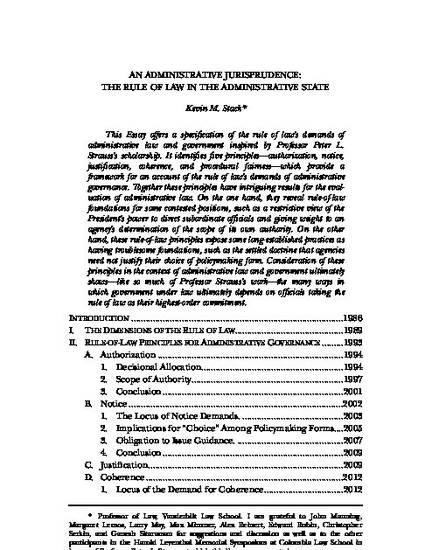
- rule of law,
- administrative law,
- jurisprudence
This Essay offers a specification of the rule of law's demands of administrative law and government inspired by Professor Peter L. Strauss's scholarship. It identifies five principles'authorization, notice, justification, coherence, and procedural fairness which provide a framework for an account of the rule of law's demands of administrative governance. Together these principles have intriguing results for the evaluation of administrative law. On the one hand, they reveal rule-of-law foundations for some contested positions, such as a restrictive view of the President's power to direct subordinate officials and giving weight to an agency's determination of the scope of its own authority. On the other hand, these rule-of-law principles expose some long-established practices as having troublesome foundations, such as the settled doctrine that agencies need not justify their choice of policymaking form. Consideration of these principles in the context of administrative law and government ultimately shows like so much of Professor Strauss's work the many ways in which government under law ultimately depends on officials taking the rule of law as their highest-order commitment.
Available at: http://works.bepress.com/kevin-stack/3/
